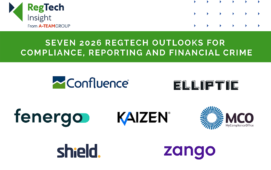
The UK regulator has criticised fund managers for failing to abide by interim guidance on ESG disclosures just days before it’s expected to announce details of a formal regulation.
But the comments have been met with frustration and caution within the ESG data and technology community, with one practitioner arguing that the Financial Conduct Authority (FCA) report casts an unfair light on ESG analysts and research.
The FCA said it had identified shortcomings in many financial firms’ application of its “guiding principles” on reporting ESG performance. Among them, it said, fund managers had omitted or failed to explain key sustainability information in fund documentation.
The FCA statement came in a review of its deliberations over proposals for a formal sustainable disclosure regulation (SDR), publication of which is expected before the end of the year.
The criticism was not received well by stewardship solutions provider Minerva Analytics, whose chief executive Sarah Wilson said the FCA had displayed “inconsistency”. She compared the FCA’s latest observations with the UK’s stance on other regulations such as the Markets in Financial Instruments Directive (MiFID II), which the government wants to partially reverse.
“This is a strange situation isn’t it?” Wilson told ESG Insight. “On the one hand MiFID and regulation of investment research has been deemed a ‘bad thing’ and must be rolled back, but on the other hand, ESG is a ‘bad thing’ and must be regulated, even though it’s clearly trying to do something good.
“There’s, therefore, an inconsistency with the FCA which worries me – we’ve just ended up with a lot of extra costs and our clients have had to pick that up.”
Guiding Principles
The FCA’s guiding principles are intended to put fund managers’ ESG reporting responsibilities in a holding pattern before formal SDRs are implemented. The principles stress that firms must be transparent in the design of their funds, providing clear disclosure of the sustainable elements within them. They must also deliver their funds in a responsible way, ensuring that they keep to their green mandates. And finally, firms must make pre-contractual and periodic disclosures about their funds.
“A review by the FCA has found that while most Authorised Fund Managers (AFMs) have made efforts to comply with the FCA’s expectations on the design, delivery, and disclosure of their ESG and sustainable funds, further improvement is needed,” it wrote in the review, published at the end of last week.
Its criticism was focused on inconsistencies in funds’ alignments with their sustainability goals; an inability among some managers to articulate the sustainability of their products; and, a lack of clear stewardship.
Why Now?
The comments paint a picture of an industry in need of stronger regulation than many observers think necessary.
“The question has to be – why this action, why now, who benefits and who is being harmed?” said Wilson. “I’ve yet to see any evidence of bad behaviour by ESG analysts – the overwhelming majority are hard-working, dedicated and deeply committed individuals who care passionately about doing the right thing.”
Investment management software provider NeoXam was more sanguine. The Paris-based company, whose clients have €20 trillion (US$21.8tn) under management, said the solution for non-compliant fund managers would be found in better ESG data and technology provisions.
Yann Bloch, head of product and pre-sales for the Americas, said that the adoption of systems that increased investment transparency would enable firms to comply with approaching regulations.
“Many firms will be reliant on legacy systems, or have data scattered all across the business in spreadsheets – you’d think that as we are nearing the quarter-mark of the 21st century, people would have learned that this kind of approach is a recipe for disaster,” Bloch told ESG Insight. “Information becomes incredibly difficult to track down, and what it means is that firms are not efficiently or effectively utilising much of the data that they purchase and consume.
“We are seeing more emphasis put on the importance of transparency and reporting by regulators globally though, not just when it comes to ESG investing,” he added. “This, among other factors, is helping to drive firms towards embracing modern technology solutions that are ultimately there to help deliver value across the business.”
Subscribe to our newsletter




